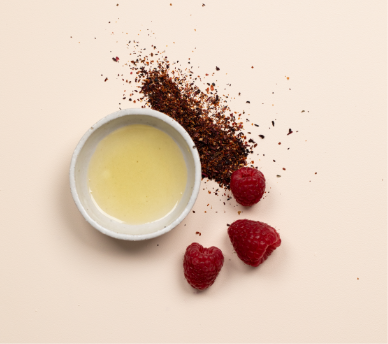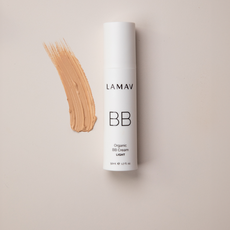Balance your Hormones Naturally!
Put your hand up if you have suffered from chronic fatigue, hair thinning, low mood or low libido (just to name a few) at some point in your adult lives. My hand is up, and don’t be worried if yours is too. It may simply come down to hormonal imbalance. Many of us don’t realize exactly how to balance hormones and the importance of hormones like estrogen or insulin, as well as the ways in which they govern many aspects of our health and ultimately the appearance our skin.
Recently, the relationship between gut health and balanced hormones has come to light, placing healthy eating at the forefront to balancing your hormones.
We know the importance of eating clean, but in our daily lives there are too many challenges that seem to be putting up a fight against gut health. Here’s what you should watch out for:
Gut Health Inhibitors
1. Prescription Medications
Far too many of us still rely solely on prescription medications to treat hormonal imbalance. The disadvantage of this approach is that the symptoms are merely masked without really getting to the root of the problem. In other words, the root cause of your hormonal imbalance. Prescription drugs also have some dangerous side effects of which stroke and cancer are the more serious ones.
2. Toxic Exposure
Frequent contact with such toxins like mold and mercury can seriously cause damage to your gut health.
3. Poor Diet
Consuming a low fiber and low nutrient food diet, along with high sugar and processed foods causes a change in the regular functioning of your gut.
4. Constant Stress
If you are constantly stressed, your gut’s nervous system becomes altered, resulting in leaky gut. The good news is that it is not impossible to treat hormonal imbalance yourself, so you don’t have to continue worrying how to balance hormones naturally!
All you need is a positive attitude, willpower and a desire to get yourself back onto the path to health and living right.
Naturally Balance Fluctuating Hormones
1. (Healthy) Fat Is Your Friend
Munching on avocados and coconuts are great for helping to keep your hormones in check. Healthy fats like these consist of medium and long chain fatty acids, which are the building blocks for hormone production. Make sure to include some guacamole at your next soirée! It will be a hit with your guests, and your gut. Healthy fats are one of the cornerstones of our our diet according to Dr. Catherine Shanahan, so make sure you’re getting enough!
Other sources of hormone balancing healthy fats: egg yolks, nuts & seeds, raw butter, anything coconut! (Healthy) Fat Is Your Friend!
2. Supplement With Magnesium
It is impossible to get every nutrient and mineral your body requires from food alone so that’s where supplements come in. Magnesium is used to treat depression and help women cope better with PMS due to its balancing effect on hormones. Magnesium helps your body in the synthesis of ribonucleic acid (RNA) and deoxyribonucleic acid (DNA), which are quite literally the building blocks of life. Magnesium also aids your digestive tract to absorb fats and proteins which are needed for the production of healthy hormones.
One of the big benefits of magnesium is that it is also the precursor to serotonin, which lifts your mood and keeps you happy. Make sure to stick to the magnesium glycinate form of it though, rather than magnesium citrate, which can upset your tummy and cause diarrhea.
3. Cut Out Caffeine
This is probably a hard one for everyone and if you are not able to steer away from your cup o’Joe completely, then at least try to cut back as even one less cup of coffee a day can have a positive impact on hormonal health. Caffeine tends to worsen an already existing endocrine system in the blood, so should be avoided or at least limited as much as possible. Get your morning boost naturally instead.
4. Spice Up Your Life
No I’m not talking about the Spice Girls song, although a dance break can do wonders for your health! When eating healthy, it’s quite remarkable what adding spices and herbs to your everyday meals can do for your hormonal balance as well as adding delicious flavor of course. Dr. Alicia Stanton, creator of the “Hormone Harmony Diet” lists the following essential herbs and spices:
Cinnamon – known to help stabilize blood sugar and reduce insulin resistance
Turmeric and Garlic – both are wonderful anti-inflammatory agents
Parsley – inhibits tumor formation; is a good source of folic acid and B vitamins, which promote heart health and it has rich sources of antioxidants including flavanoids, Vitamin C, and beta-carotene
Oregano – the oils in this spice are an effective anti-bacterial agent, it contains numerous phytonutrients that function as potent antioxidants, and is a very good source of fiber.
Fennel – provides antioxidant protection and immune support from Vitamin C; the fennel bulb is a good source of fiber, which may help to reduce elevated cholesterol levels and prevent colon cancer and its good source of folate and potassium have additional benefits for heart health
Cayenne Pepper – the high concentration of capsaicin has been studied for its pain-reducing effects, its cardiovascular benefits and its ability to help prevent ulcers.
Ginger – has multiple health benefits including gastrointestinal relief, anti-inflammatory and antioxidant properties and relief of nausea and vomiting during pregnancy.
Lavender – essential oils from this herb are extracted for its medicinal purposes. Add lavender essential oil to your moisturizer or a spray water bottle to relieve chaffed, irritated or burned skin. Lavender has natural antiseptic properties so use lavender oil instead of harsh rubbing alcohol to treat cuts and scrapes.
A few more ways to ensure hormonal balance…
1. Hit the Sack
Sleep is essential for hormonal balance. Did you know that your hormones work on a strict schedule? The stress hormone, cortisol, is regulated at midnight so if you are only going to bed at 1 am or 2 am then you are never giving your body a break from the flight/fight stress response, which plays havoc on your hormones. Aim to go to bed at 10 or 11 at night so you are away in dreamland when midnight comes around.
2. Stay Away from Harmful Toxins
Most household cleaners, detergents and even your hand-soap can be absorbed by the skin or inhaled and interfere with your hormones by mimicking hormones that your body needs to function. Go natural wherever you can and avoid antibacterial soap, as the main ingredient found in antibacterial products is usually Triclosan. Triclosan has been proven to disrupt hormone balance so make sure to avoid it completely Also avoid cooking in plastic containers, cook only in stainless steel or iron skillets and eat organically and locally as often as possible.
Going natural allows you to stay away from harmful toxins that interfere with your hormones.
3. Interval or Burst Training
Exercise is excellent for regulating the hormones, however an extremely intense cardiovascular workout can do more harm than good on an already stressed endocrine system. A combination of light cardio with a few sets of heavy weights or 3 x 30 minute sessions of HIIT or High Intensity Interval Training a week is best to trigger the release of healthy hormones into the bloodstream and keep you properly balanced.
4. Organic Skin Care
Just as buying organic foods is the better choice when it comes to feeding your body, feeding your skin organic is just as important. LAMAV means more than purchasing organic, you are making a decision to put only the highest quality, certified organic ingredients on your skin. Our skincare is free from toxic chemicals like triclosan, parabens, lead, and formaldehyde. Instead, we focus on creating products that include natural ingredients high in nutrients for protecting, soothing, and restoring balance to your skin.
LAMAV means more than purchasing organic, you are making a decision to put only the highest quality, certified organic ingredients on your skin.
A balanced diet and a balanced life is the key to balancing your hormones which will result in a gorgeous glowing complexion.











